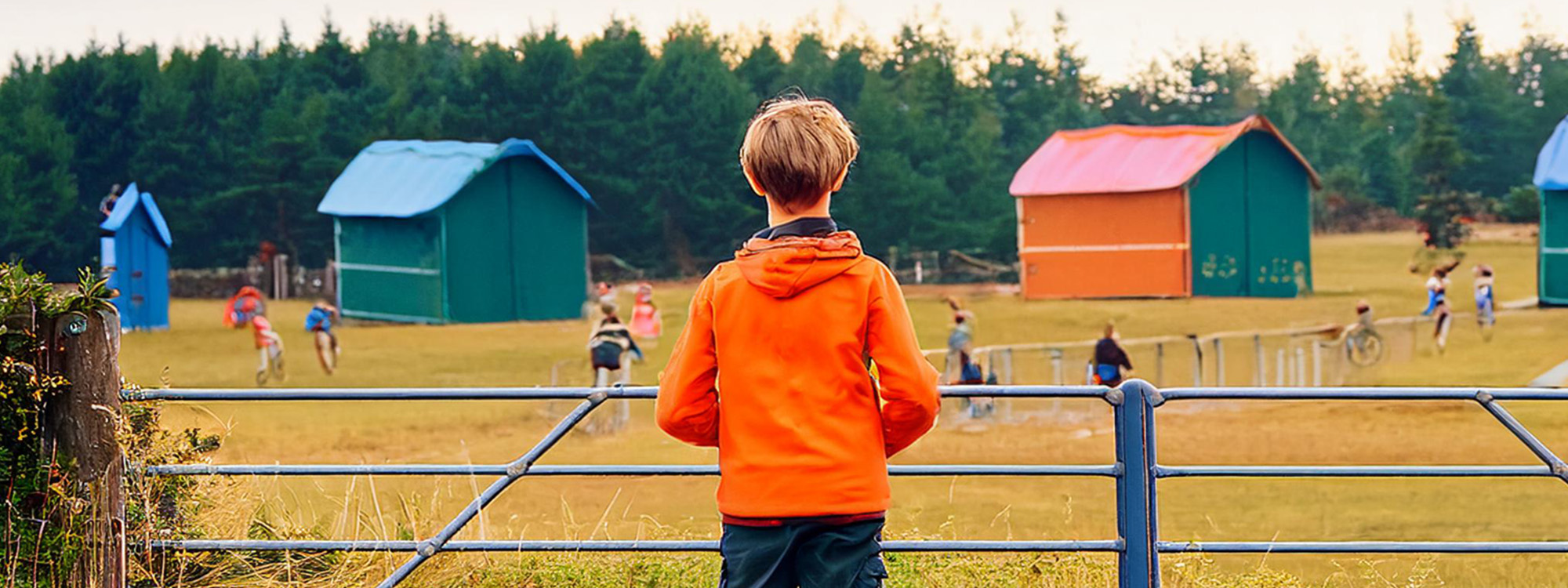| |
People are disgusted by the idea of adult sexual attraction to children, independent of any harm to particular children from child sex exploitation. Ethan Edwards is the co-founder of Virtuous Pedophiles. Blog posts reflect his personal views, and are not statements from the organization. Just about everyone agrees that the making of CP is a terrible thing and rightly classified as a serious crime.
Most also think that viewing CP is terrible and rightly considered a crime. The main reason is that the children in the videos will find out that people have been viewing a record of their sexual abuse for purposes of sexual gratification and be distressed by that knowledge.
But there is also a movement afoot claiming that even if pictures of the child are innocent and in no way a record of child sex abuse, viewing them for sexual purposes is still immoral and harmful. This movement would like to make the positioning of such pictures in such a context illegal and punish those who do it.
One recent statement of this view is to be found in Everyday Pictures of Children in Sexualizing Context" by Red Barnet.
The stated rationale for action against these pictures is that it harms children because they are being sexually exploited.
My alternative explanation for why this movement is powerful is that people are disgusted by the idea of adult sexual attraction to children, and they don't want any evidence of this to be visible online. This desire is independent of any harm to particular children from child sex exploitation.
One recent incident concerned people noticing that YouTube videos of children often attracted comments with timestamps, highlighting moments when (for instance) a girl's underwear briefly became visible. Other commenters clearly indicated that they found the child sexually attractive. This caused an uproar. Just about everyone agreed this was a terrible thing, and in early 2019 YouTube changed its policies to prohibit comments on most children's videos and imposed other restrictions. There may have been occasional mention of how distressed the child was to find out about such comments, and there was some mention of their parents being outraged on behalf of their daughters. But for the most part, the impetus was simply that people found the idea repulsive.
Makers of YouTube videos like it when their videos are popular, including getting lots of hits. For some it is a livelihood. YouTube's new restrictions seriously hampered this for many people. If the concern is for the children, YouTube could have created an "opt-in" where the responsible adult would say, on behalf of their child, that they wanted to be able to post videos as before and not have YouTube censor the comments. But such an option was never considered. Why? Because the real impetus behind the change was that people found it disgusting that pedophiles were expressing an interest in children that was available for the world to see.
Red Barnet starts with the UN's position that children have the right to be free from sexual exploitation. The authors feel that innocent pictures in a sexualizing context constitute sexual exploitation of the child. This stretches the meaning of sexual exploitation beyond reason. Obvious sexual exploitation is sexual activity with a child, including any filming of the activity. Arguably the child is exploited if people watch this imagery.
But the authors claim that "the act of inserting a child in a sexual context or sexualizing a context featuring a child constitutes the sexual exploitation of the child". This is incorrect, and one key feature to note is that the child herself is not being put in a sexualizing context, it is only images of the child.
The authors then ask if a child can be exploited if they are unaware of it, and answer emphatically that yes, they can:
"...putting everyday pictures of children in sexualizing contexts ... represents a serious violation of the children ... It is a gross violation of a childs right to be protected from being made a sexual object. Whether or not the child knows about the sexualization does not change whether they should be protected from it. It is the childs right. And it is our responsibility as a society."
Fundamentally, they are proposing that having sexual thoughts about children is a crime — a thought crime. They may in practice be limited to investigating cases where images can be publicly found, but they are claiming that it is the child's right to have no one think sexual thoughts about her, even if neither she nor anyone else ever finds about it. In no free society can thoughts themselves be criminalized!
The true motivation here is not the child's right to be free of exploitation. The motivation is disgust at the idea of adult sexual attraction to children. The only straw they can find to clutch at for why this is actually wrong is the child's right to be free of exploitation.
Later, however, the authors take a notably different perspective. They studied posts in the peer support groups Vision of Alice, which I will ignore in this review. They also studied posts in the Virtuous Pedophiles group, of which I am co-founder. They recognize that through no fault of our own we pedophiles are sexually attracted to children and must live with that attraction, and they appear sympathetic to the idea that we would look at pictures of children and think sexual thoughts, as long as we make sure the child never finds out about it. They suggest that with this approach, we have the best interests of the child in mind. The implication is that maybe it's not so bad if we have private sexual thoughts about children. This is not consistent with their earlier absolute condemnation of child sexualization even if the child never finds out about it.
Perhaps the true motivation here reveals itself in a slightly different way. What they really want is for the public not to be able to find any evidence of pedophiles finding children sexually attractive. They may not like the idea that pedophiles think such thoughts at all, but as long as there is no visible evidence of those thoughts, maybe that's a reasonable compromise with our natural desire for some measure of sexual fulfillment. It is a concession to the reality of our position that lots of other people would not make. But it is not logically consistent with their earlier view.
Along with the child's right to be free from sexual exploitation, the authors also explore how children can be psychologically harmed by sexual interactions with adults or having records of their abuse publicly visible — and naturally extend it to harm from finding sexualized pictures of themselves.
One key element is shame at having been viewed in that way. The authors rightly point out that there is no cause for shame as it is never their fault. But there is another way to reduce any temptation to feel shame. Here I think society has an opportunity and an obligation to change. The classic "pedophile rights" argument is that sexual activity between an adult and a willing child is only harmful because society says it is. I strongly reject that argument. In contrast, the Virtuous Pedophiles position is that the attraction itself, if never acted upon, should be accepted — we didn't choose it and can't make it go away. And one consequence is that it should not be any cause of shame for a child to find out that an adult had sexual thoughts about her. This will be very hard for many people to accept, but that is where justice leads.
Consider for comparison male homosexuality. I am all for gay rights, but I personally have no interest at all in sex with a man and find the idea personally repugnant. If some gay man sees me and later has a private sexual fantasy about me, I have no problem with that. Suppose he finds an innocent picture of me online and puts it in a sexualized context, perhaps on the same page with explicit gay porn. If this is brought to my attention, I might feel a touch of revulsion, but I would not feel my rights were violated. Any negative reaction I have is my problem, not theirs. There is nothing wrong with a gay man finding me attractive and fantasizing about it, and there is nothing wrong with him putting together something online that shows that fact.
And this, I believe, is where society should aim to go with sexualized contexts of innocent pictures of children. Yes, some men may find a child sexually attractive, and there's nothing wrong with that. Many older children do sense this intuitively, being more flexible and open-minded than adults. And in this case, if they later change their minds, I believe it is primarily because of the prejudice that runs so strongly through our society.
I do believe it is rude to mark up children's YouTube videos with comments showing sexual interest, just like it would be rude for the gay man to send me the collage he has created of me. YouTube will of course make their own rules according to their own values and priorities. And as long as society retains its strong prejudices, it is most considerate not to create sexualized images of children that are publicly visible. But none of this should be of interest to law enforcement.
About the author: Ethan Edwards is a pseudonym. I am a pedophile, always celibate, and I have never seen child pornography. My attraction is strongest to girls around 4 years old, but I am also attracted to girls and women up through their 30s or beyond. Now in my late 60s, I'm divorced and living alone. I was married for over 10 years and was heavily involved with raising my 3 daughters. For most of my career I was a successful software engineer. I am very unusual for a pedophile in that I didn't realize that I was one until I was in my 50s—but it was there all along. I am angry that we all must remain silent or risk losing everything. That was my mindset when I co-founded Virtuous Pedophiles in 2012. I soon learned of the the terror of the typical pedophile who realizes as a teenager that his attraction isn't going to go away, who has nowhere to turn for help. The injustice I am most passionate about is the harsh legal penalties imposed on pedophiles who passively view illegal images of children. I stepped down from my role as a director of Virtuous Pedophiles early in 2024 and am delighted to pass the mantle on to a younger generation. This content was taken from Ethan's longstanding blog, Celibate Pedophiles. Some of the titles and taglines have been edited for their inclusion at thepword.
You can see an earlier version of the blog at the wayback machine. | |






 thread: a new pedophile was just born
thread: a new pedophile was just born accepting law-abiding pedophiles: five stages of grief
accepting law-abiding pedophiles: five stages of grief thread: welcome, pandemic maps!
thread: welcome, pandemic maps!